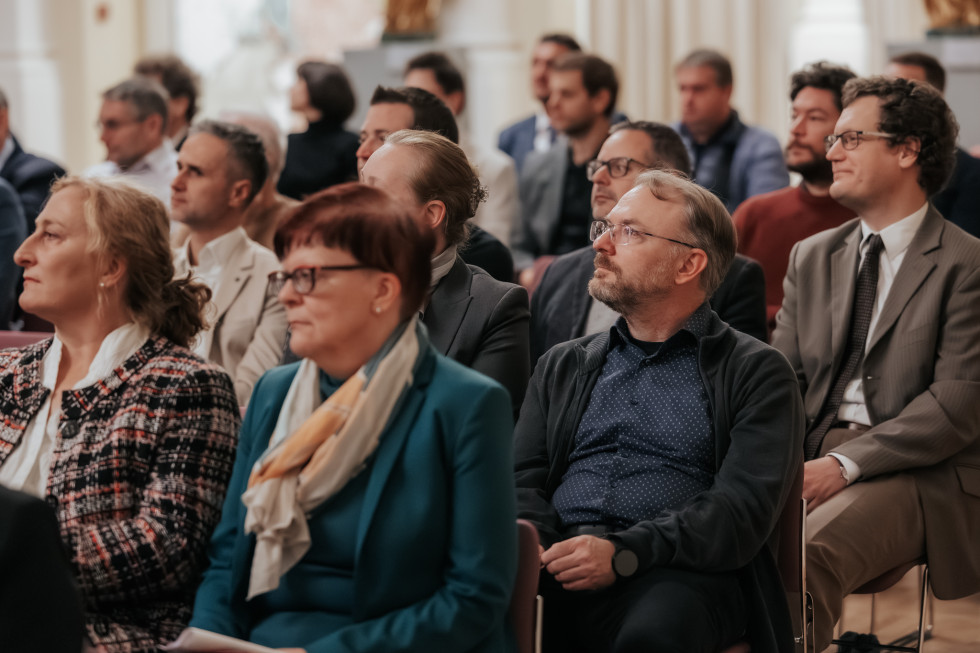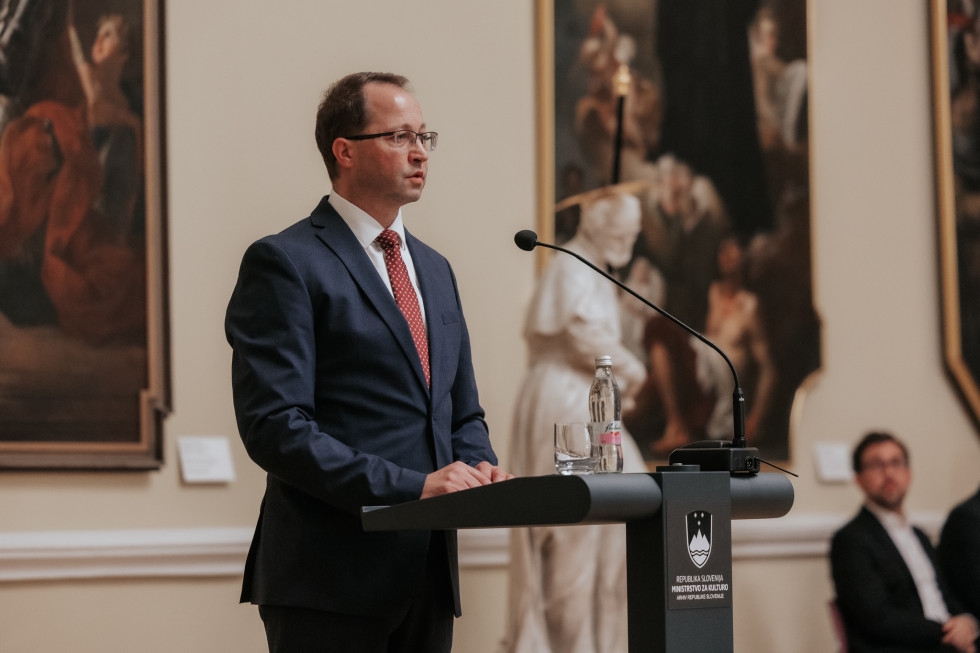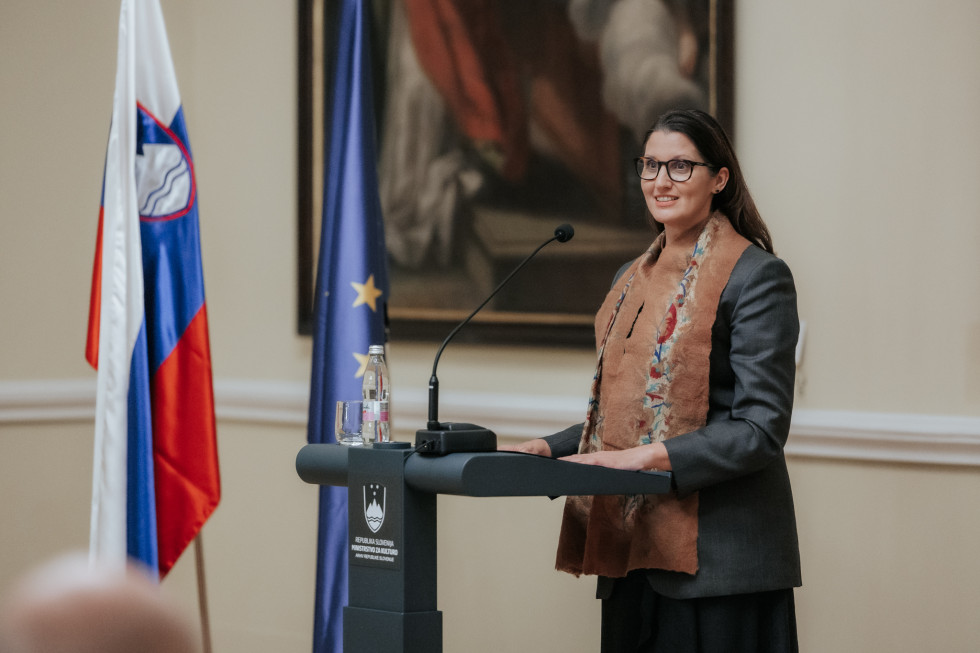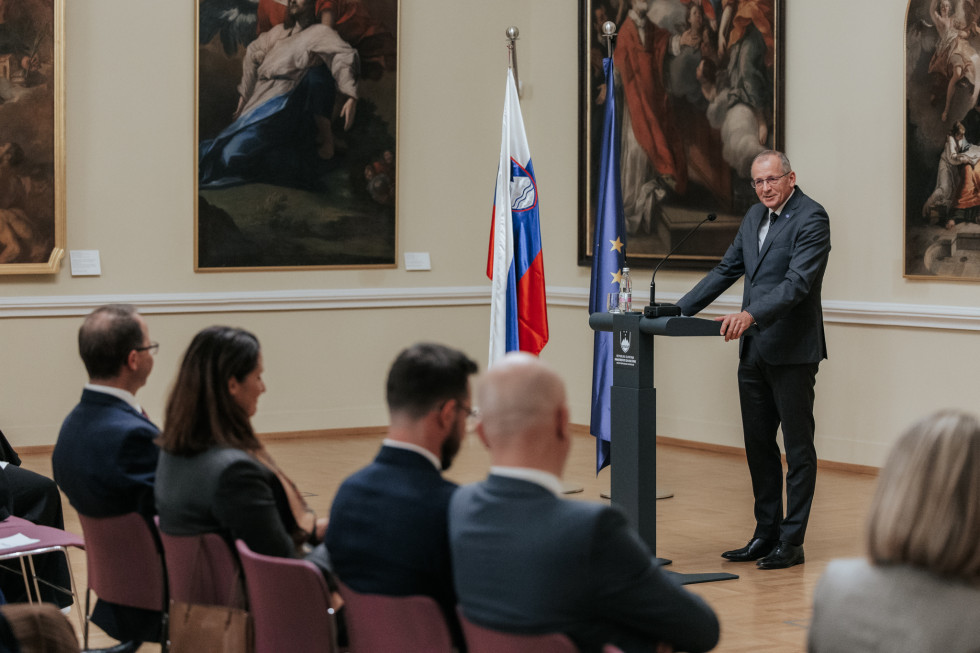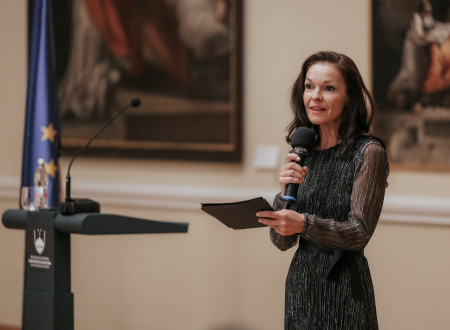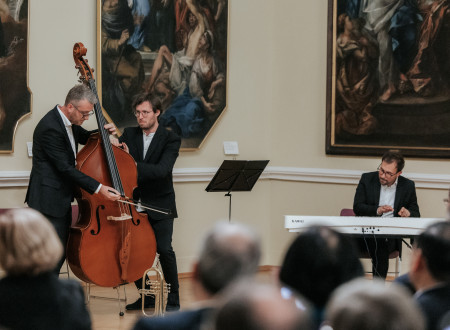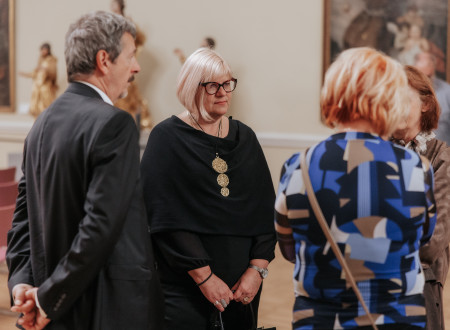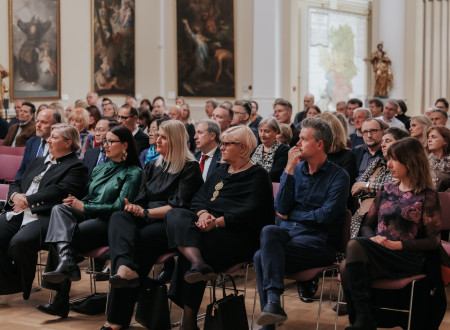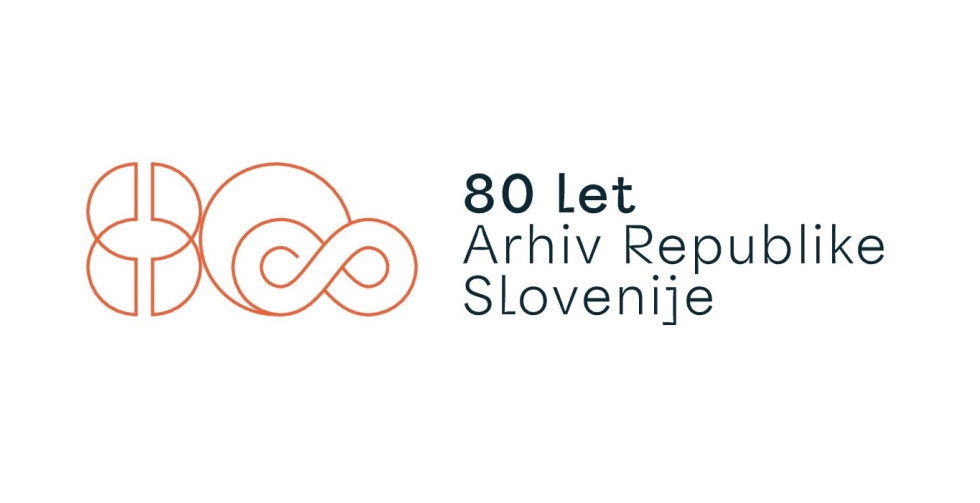Archives of the Republic of Slovenia Celebrates 80th Anniversary with a Commemorative Ceremony
Under the honorary patronage of the President of the Republic of Slovenia, Dr. Nataša Pirc Musar, this formal ceremony emphasized the archives vital and irreplaceable role in safeguarding Slovenia's cultural heritage for future generations.
The ceremony was held on Thursday, November 6, 2025, at 7 p.m. in the Grand Hall of the National Gallery in Ljubljana.
At the event, the following speakers addressed the anniversary and the key role of the Slovenian national archive:
- Dr. Andrej Nared, Director of the Archives of the Republic of Slovenia
- Špela Spanžel, Director General of the Directorate for Cultural Heritage at the Ministry of Culture
- Acad. Prof. Dr. Peter Štih, distinguished historian and President of the Slovenian Academy of Sciences and Arts, who delivered the keynote address.
The event highlighted the eight decades of dedicated work of the Slovenian national archive in preserving and ensuring access to Slovenia’s archival cultural heritage.
“The Archives of the Republic of Slovenia is celebrating the 80th anniversary of its founding. It was originally established as the Central State Archives of Slovenia by a decree of the National Government of Slovenia, adopted on October 31 and enacted on November 7, 1945. Due to administrative and political changes, its name was changed several times, most recently in 1990, yet its mission remained the same, even gradually expanding over decades.
Today, the Archives of the Republic of Slovenia stands as the country’s central and largest archival institution, responsible for the professional, administrative, and shared tasks involved in preserving Slovenia’s archival heritage. At the national level, it oversees the entire life cycle of archival material – from its creation by record creators to its use at the archive and its presentation to the public. In doing so, it contributes to the promotion of archival material and history, as well as our shared cultural heritage of the Slovenian space, which represents the DNA of our national identity and confidence.
Our anniversary coincides with the acquisition of new premises, which have become a fitting home for the Slovenian national archive. The institution currently comprises eight sectors, employs 64 experts, and safeguards valuable archival holdings spanning approximately 30,000 running meters, organized into almost 2,000 fonds and collections.
The documents we keep – ranging from parchment deeds to modern digital records – not only bear witness to past events but serve as a key resource for understanding the present and a reliable basis for shaping future decisions. In the digital age, the Archive has successfully adapted to new challenges. Digitization, e-archiving, and online accessibility continue to expand the scope of archival science, enabling modern, global access to our heritage."
"Eighty years is both a long and short period: eight decades are not long, for example, through the prism of the long-duration history, nor in the light of the historical distance required for judging achievements, cultural phenomena, or the building of a nation's identity and collective memory. However, it is a period long enough to build solid foundations for professional work, networking, mutual exchange, and creating the conditions necessary for work. /…/
Archives perform tasks that are often hidden and seemingly repetitive tasks, doing so to ensure the continuity of history and memory, which is in our public interest. They look after our common heritage and much more. This is also why all Slovenian archives are status-wise national public institutions. Their importance, although it may seem contradictory, is further emphasized by the twenty-first century.
When I think of the Slovenian archives, I think of the projects we undertake together and the topics we address nationally and internationally. For example, the efforts concerning succession issues after the former joint Yugoslav state, or the restitution of valuable materials to its original locations; the proposals for the international affirmation and recognition of Slovenian heritage within the framework of UNESCO programs; and even more so, the professionally consolidated work in the fields of digitalization, standards, and artificial intelligence.
When I think of Slovenian archival experts, I think of a connected professional community that supports and helps one another, sticks together, and sometimes does not take itself too seriously. Moreover, with self-confidence, it weaves collaborations that also transcend the boundaries of archives and connect institutions that care for our heritage—be it written, material, visual, or intangible.
If cooperation, connection, and respect are inherent to culture—if they are, so to speak, inscribed within it—then let your and our work reflect this. Be solidary among yourselves, connecting with your core professions and with cultural, educational, and scientific institutions; be inclusive of creators, individuals, and groups; open to your environment; and understanding towards different groups of visitors... This, too, is your DNA and it complements the ethical approach to work—the awareness and pride that we are co-creating the kind of society we desire."
"With today's ceremony, we are marking eighty years of the Archives of the Republic of Slovenia, an institution that we can say belongs among those that have created and shaped us as a national community. With its archival records, which are miles long and up to a millennium or more old, it is one of the fundamental pillars of Slovenian culture and history, which are inextricably linked to the written word. The Archives of the Republic of Slovenia, through its archival holdings, is thus one of the most important treasuries of our historical memory and the guardian of countless valuables from our past, recorded on parchment, paper, or otherwise.
Over time, the Archives of the Republic of Slovenia, which is our largest and most important archival institution, has compiled what is probably the most important collection of written heritage of Slovenes and in Slovenia—of course, alongside the one held by the National and University Library. It is understandable that the archive does not only preserve the Slovenian written heritage and the most precious and unique documents of Slovenedom, but also material that testifies to the creativity, curiosity, and spiritual horizons of our ancestors and predecessors of various languages, identities, and affiliations from the times before we became Slovenes.
... as we celebrate the eightieth anniversary of the Archives of the Republic of Slovenia today, we look largely to its past, which appears to us as a story of growth and numerous transformations; but at the same time, also as a long journey from modest beginnings, when the main goal was the collection of scattered material, to today's modern institution that connects tradition and the digital future, and which is simultaneously one of the most important guardians of our cultural and national identity."


